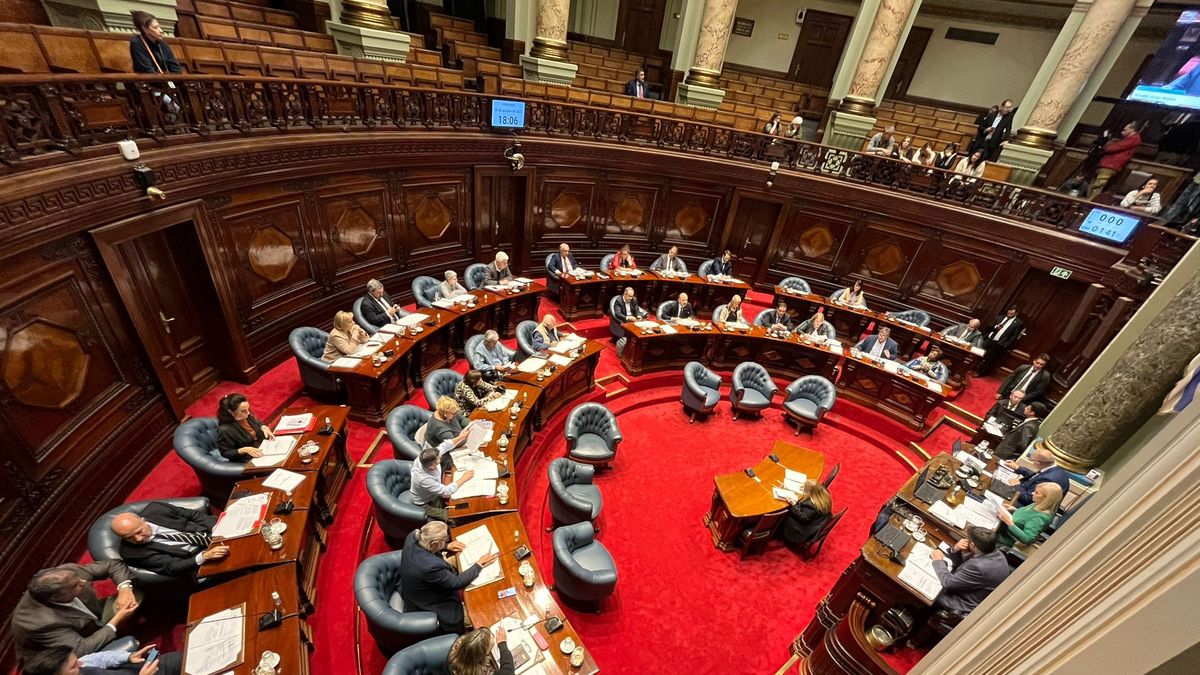He Senate approved the house arrest bill for people over 65 years of age, previously validated in the Constitution and Legislation Commission, thanks to the votes of the legislators of the Republican Coalition, but without the support of Broad Front.
It is a text that was used as a “bargaining chip” in the negotiation for social security reform by Town meeting. However, the senators rejected an additive article promoted by CA to grant the benefit to those over 70 years of age on a mandatory basis, that is, it must be validated on a mandatory basis.
This is the last week of Parliament’s activity and within that framework a project not without controversy was discussed. More than two years of discussion were necessary to reach this moment in which the text presented by the nationalist senator Carmen Asiaín, which included lobbying proposals as well as academic and legislative suggestions, moved towards debate in the plenary session of the Upper House.
Contrasting and controversial visions
Asiain He referred to that situation and clarified: “It seemed to us that it was a tailored suit to favor certain people.” In that regard, he maintained that “we don’t have to look so much at the crime but rather at the situation of vulnerability.”
However, during the session the senator and leader of CA spoke, Guido Manini Ríos, who considered that “a process of revenge and not justice is being carried out” against the members of the last dictatorship. In this sense, he pointed out that “there are magistrates who do not honor their role and act as agents of that revenge.”
In his speech, he argued: “We understand that those over 70 years of age should serve house arrest, but above all taking into account the reality that we see in our country. There are prisoners who are innocent.”
At the time, the proposal had generated controversy in the sectors defending the Human rights since, although the initiative of the party led by Manini Rios excluded from the possibility of accessing the benefit people who were prosecuted for crimes of rape, aggravated homicide and Crimes against humanitythe majority of the dictatorship’s repressors have not been charged with these latest crimes – but with homicide, torture and kidnapping – so there was a risk that more than 20 repressors arrested in jail Sunday Arena they obtained house arrest.
This was also the argument used by the Wide Front to oppose from the first moment, and vote against the project that saw the green light in the Constitution and Legislation Commission at the beginning of November.
What does the project propose?
In June 2022, Asiaín presented a new project that, although it was the basis that was voted on in commission, had a series of modifications throughout your treatment.
In that sense, the project does not contemplate the possibility of granting the benefit “ex officio and without further formalities”, but rather lists the “elements of special relevance” that Justice must take into account for “the replacement or cessation of preventive detention or other precautionary measures.” Among them, the main one is that the person “was 65 years old or older”, when this “does not involve risks considering the circumstances of the crime accused.”
Likewise, the text that, “at the request of a party”, the competent court may order the release under certain circumstances, such as “when the party formalized suffers serious health problems or one disease incurable in the terminal period.”
Also “when it comes to a pregnant woman with health risk for herself or with risk for the continuation of the pregnancy”, or in the case of a mother “in charge of a child over five years of age who suffered from health problems or did not have another person to take care of him” .
In the specific case of people deprived of liberty over 65 years of age, the project establishes that, in addition to age, it must be evaluated whether the “biopsychosocial condition” of the person “will determine that deprivation of liberty in a prison establishment harms their health or “It violates their human dignity.” Thus, in any case, “the judicial decision must be based on the medical board reports appointed by the judge”, which must include “reports of medical and psychological experts and social”.
Source: Ambito




